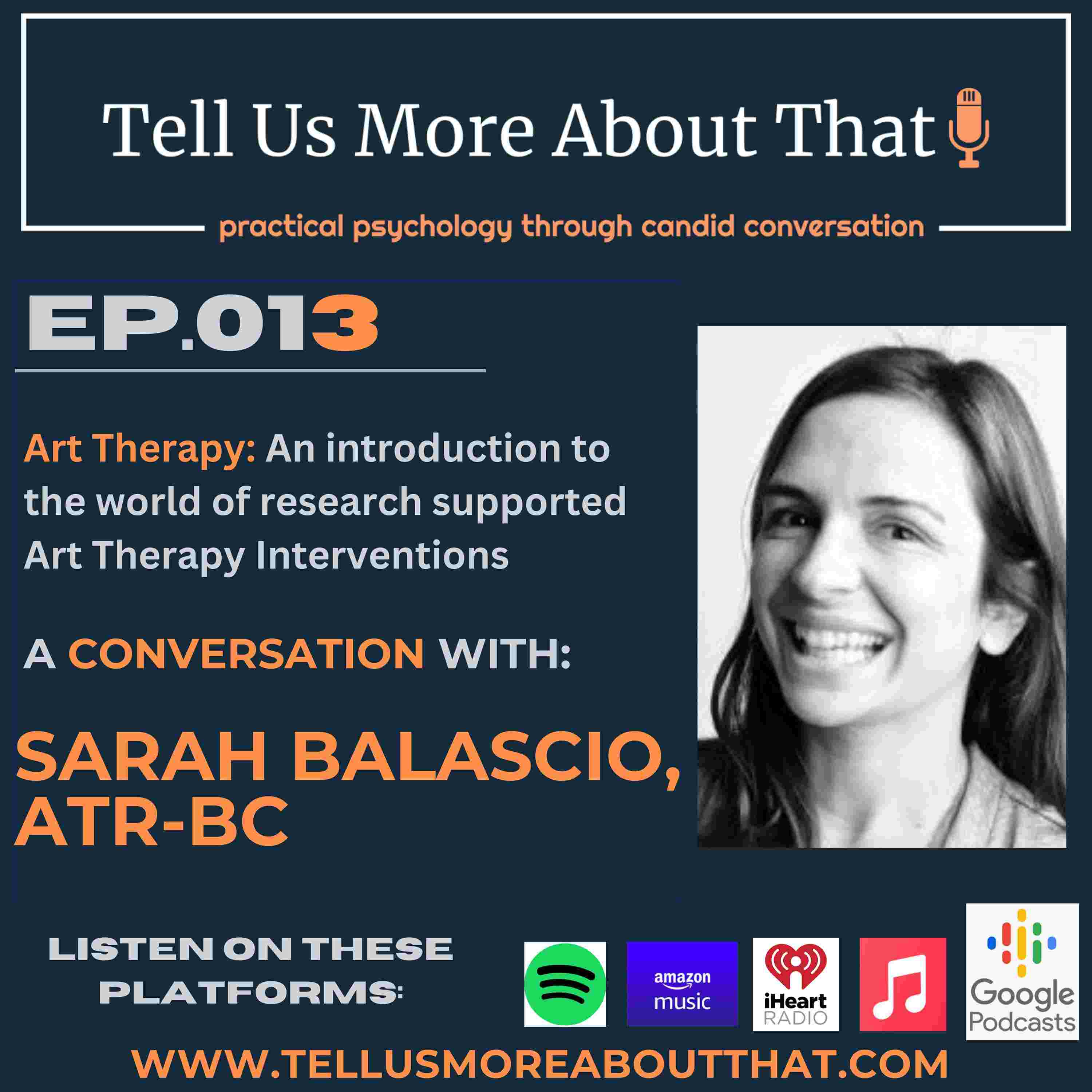

Sarah Balascio is a nationally board-certified art therapist and adjunct lecturer with over 15 years of experience working with children, adolescents, adults, seniors, families, and groups. Sarah has a master’s degree in Education from Lesley University in Massachusetts and a second master’s degree in Art Therapy from Pratt Institute in New York.
She has practiced art therapy in hospitals including New York Presbyterian, residential programs for adolescents, eating disorder treatment centers, schools, autism centers, and in private practice. She has helped clients with issues such as anxiety, depression, life transitions, eating disorders, trauma, grief, addictions, developmental and sensory issues, as well as autism spectrum disorders.
She currently works at the College of William & Mary's McLeod Tyler Wellness Center facilitating groups and individual sessions for students, faculty, and staff as well as teaching undergraduate courses in the field of art therapy under the Wellness Applications Program. She also serves on the Art Therapy Credentials Board Nominating Committee. She recently published a book through Routledge titled "Art Therapy Directives: An Intervention Toolbox."
TUMAT Takeaways:
• Art therapy is a field of mental health that uses art and creativity as a way to express and understand emotions.
• Art therapy can be beneficial for a wide range of issues, including stress reduction, trauma, and eating disorders.
• Art therapists work in various settings, such as psychiatric hospitals, residential treatment centers, and schools.
• Art therapy can be integrated into traditional therapy practices and can be helpful for individuals who may not consider themselves artists.
• Art therapy is not limited to children and can benefit people of all ages.
• Art therapy has a significant impact on the quality of life for individuals with dementia or Alzheimer's.
• Art therapy aligns with somatic therapy in exploring and processing trauma through a feeling-based approach.
• The future of art therapy involves expanding access through state licensing and integrating it into general studies and traditional therapy programs.
Check out Sarah's book, here!
Learn more about Tim Robbins Prison Project, here!